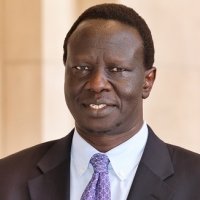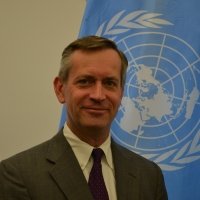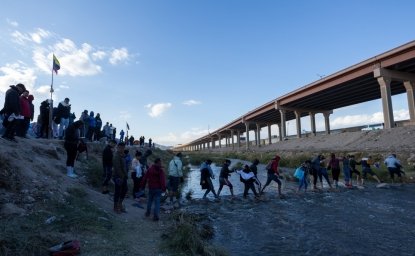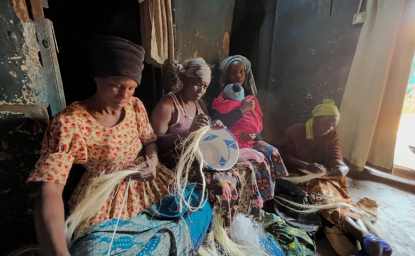Working Group Report: US Leadership Matters in Addressing Forced Displacement Crisis | Six Major Issues with Recommendations for Refugee Policy and Programming


Forced displacement is a persistent global challenge that requires international cooperation and sustained leadership to address it. The number of people forcibly displaced by conflicts, persecution, violence, and other human rights abuses has more than tripled from 33.9 million people in 1997 to at least 110 million people in 2023. As of mid-2023, there were 62.2 million internally displaced persons; 36.4 million refugees who live in host countries; 6.1 million asylum seekers who are applying for recognition as refugees; and 5.3 million other people in need of international protection. The US and other stakeholders must do more to ease pressure on host countries; enhance refugee self-reliance; expand access to resettlement, integration and complementary pathways for refugees; and address the root causes of forced displacement.
This Working Group Report identifies six major policy and programming issues that require consistent response and effective leadership by the United States and others:
- Prevention and Preparedness: Need for innovative mechanisms to prevent and prepare for crises producing mass movements of people across and within borders.
- Protection of Displaced People: Find better ways to protect refugees and other displaced people while addressing the root causes and consequences of their displacement.
- Solutions for Protracted Refugees: Need for greater progress in finding sustainable solutions for protracted refugees and other displaced people who are stuck in limbo.
- Refugee Participation: Continue to sustain and increase meaningful participation of refugees in decision-making on issues affecting them and to shape their narrative.
- International Cooperation: Ensure consistent efforts to strengthen international cooperation and organizations that protect and assist refugees and displaced people.
- Implementation of Global Compacts: Implement the Global Compact on Refugees and Global Compact on Migration while addressing their limitations.
The current forced displacement trend is likely to worsen in the years ahead unless the root causes are addressed. Current displacements from conflicts in Gaza, Syria, Afghanistan, Ukraine, Venezuela, Sudan, Myanmar, and others receive media attention, while many protracted refugee situations in Kenya, Colombia, Uganda, Bangladesh, Pakistan, and other countries disappear from the headlines. Prevention of conflict with its recurring displacement lags far behind what is needed in a world too often at war. Neighboring countries, often with few resources, continue to disproportionately host most refugees, and solutions to displacement remain tied to three elusive options: return, local integration, and resettlement, which remain inadequate.
The United States is more likely to respond to global forced displacement challenges when four conditions come together. First, when there are strong foreign policy linkages to crises that produce refugees, and the refugees themselves are seen as part of US policy interests. Second, when there are clear and highly visible humanitarian needs. Third, when important domestic constituencies support action to address those pressing needs. Fourth, when there is a strong congressional backing of presidential decisions to exert leadership that facilitates action.
The US exerts its leadership on refugee issues as a donor and receiving country. In the former, the US provides assistance and protection for refugees and internally displaced persons in developing countries, while in the latter case, the focus is on admission and stay of those seeking protection within the US.
The convening power of the US government has played an enormous role historically and continues to be one of the principal reflections of American leadership within the field, though there are reasons to be cautious. The confluence of border dysfunction and a global displacement crisis has sapped US resources, resolve, and leadership within the international refugee regime. Nevertheless, by most measures, the US is still the dominant power, whether measured by influence, money, or refugee admission levels. While the US government has been supportive of other governments that wish to take the lead in important international initiatives to enhance refugee protection, there is little likelihood that major changes in global policies would succeed without US agreement to them.
Authors

Donald G. Herzberg Professor Emerita, Georgetown University

Professor of Political Science and Director, Tower Center SMU

Contributors

Oliver-McCourtney Professor of History, The Pennsylvania State University

Senior Fellow, Refugees International

Founder, Empower; Co-Managing Director, Refugee Seeking Equal Access at the Table (R-SEAT); Co-founder, Centre for Asia Pacific Refugee Studies at the University of Auckland, New Zealand

Former Assistant Administrator, USAID

Vice President for Global Operations, International Republican Institute

Regional Representative for the US and the Caribbean, UNHCR

Refugee and Forced Displacement Initiative
The Refugee and Forced Displacement Initiative (RAFDI) provides evidence-based analyses that translate research findings into practice and policy impact. Established in 2022 as a response to an ever-increasing number of people forcibly displaced from their homes by protracted conflicts and persecution, RAFDI aims to expand the space for new perspectives, constructive dialogue and sustainable solutions to inform policies that will improve the future for the displaced people. Read more




